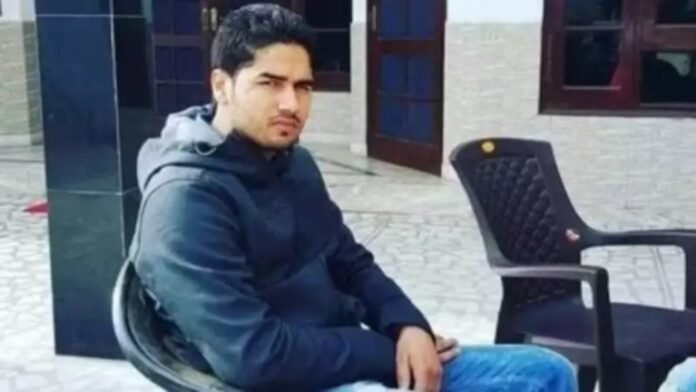India has announced that it will formally seek the extradition of Khalistani terrorist Arshdeep Singh Gill, commonly known as Arsh Dalla, following his recent arrest in Canada. Dalla, who has been on India’s radar for years, is implicated in several high-profile cases of terrorism, extortion, and targeted killings in Punjab. His arrest is being viewed as a significant breakthrough in India’s efforts to curb the activities of pro-Khalistani groups operating from foreign soil, particularly in Canada, which has seen a rise in pro-Khalistan activities in recent years.
Background on Arsh Dalla and His Activities
Arsh Dalla, originally from Punjab, has been a notorious figure in India’s law enforcement circles due to his alleged involvement in a series of violent crimes and terrorist activities. Dalla, now residing in Canada, has long been associated with pro-Khalistan ideologies and has reportedly orchestrated various acts of terror and violence in India from abroad. He is allegedly connected to the Khalistan Tiger Force (KTF), a banned militant group that advocates for the secession of Punjab from India to create a separate Sikh state.
Over the years, Indian intelligence agencies have been tracking Dalla’s activities closely. According to official reports, Dalla has been linked to extortion rackets targeting Punjab-based businessmen, financing acts of terror, and planning assassinations of prominent figures. The Indian government has accused him of using social media platforms to recruit young people in Punjab for militant activities, thereby posing a serious threat to national security.
India’s Extradition Request
Following his arrest, India’s Ministry of External Affairs has indicated that it will formally request Dalla’s extradition from Canada. A senior government official stated, “We have been working with Canadian authorities to bring individuals involved in terror activities in India to justice. Now that Arsh Dalla is in custody, we will take all necessary diplomatic steps to bring him back to India to face trial.”
The extradition process, however, may face several challenges. Canada has traditionally been cautious in extraditing individuals based on charges from other countries, particularly in cases involving political or religious sensitivities. Canada’s legal system requires substantial evidence of an individual’s direct involvement in a crime, and extradition can be delayed if the individual contests it in court. In the past, Canada’s judicial system has been meticulous about reviewing cases involving pro-Khalistan activists, often due to the strong Khalistani support base within Canada’s Sikh diaspora.
However, Indian authorities are optimistic. They believe the extensive evidence collected against Dalla, including documented financial transactions, witness testimonies, and intercepted communications, will help make a strong case for extradition. If successful, Dalla’s extradition would represent a landmark achievement in India’s fight against overseas-based Khalistani operatives.
Diplomatic Implications and Canada’s Response
Dalla’s arrest in Canada is likely to have significant diplomatic implications, as India has been urging Canada to take stricter actions against Khalistani extremists for some time. In recent years, India has voiced concerns over the rise of pro-Khalistan activities in Canada, which they claim are often tolerated by Canadian authorities due to domestic political dynamics. Canada’s large Sikh population, some of whom support Khalistan, has led to sensitive political considerations for the Canadian government, often complicating its response to Indian requests.
In response to Dalla’s arrest, the Canadian government has reassured India of its commitment to combat terrorism and extremism, emphasizing the importance of law enforcement cooperation between the two nations. A Canadian official familiar with the situation noted that “Canada does not condone any form of terrorism, and we are committed to working with India to address mutual security concerns.” Canadian authorities, however, have yet to make a public statement regarding Dalla’s potential extradition, given the ongoing legal process.
Indian Diaspora and Domestic Reactions
Dalla’s arrest has drawn significant attention in India, especially in Punjab, where many of his alleged crimes were committed. Families of victims and residents of Punjab who have witnessed the surge in Khalistani militancy see his detention as a step toward justice and a warning to others who might consider funding or supporting extremist activities from abroad. Political leaders in Punjab have also welcomed the news, calling on Canadian authorities to expedite the extradition process and help India take strong action against those who threaten its security.
In addition, members of India’s Sikh community, both domestically and internationally, have condemned Dalla’s actions, stating that his alleged activities do not represent the Sikh faith or the values of peace and brotherhood it stands for. Leaders of prominent Sikh organizations in India have argued that militants like Dalla tarnish the community’s reputation, and they have expressed hope that his arrest will lead to a decline in pro-Khalistan activities.
The Broader Implications of Dalla’s Arrest
The arrest of Arsh Dalla could potentially mark a turning point in India’s fight against Khalistani militancy abroad, as his detention demonstrates India’s increased focus on targeting overseas networks. The Indian government has been strengthening its intelligence sharing and cooperation with various countries to monitor the activities of separatist organizations and has been advocating for stricter international regulations against funding and supporting such groups.
Dalla’s arrest also underscores the complex diplomatic relationship between India and Canada. While both countries share strong economic and cultural ties, issues related to Khalistani separatism have been a longstanding point of tension. Canada’s handling of Dalla’s extradition request will likely be closely observed in both countries, as it could set a precedent for future cooperation on terrorism-related cases.
India’s call for Arsh Dalla’s extradition reflects its determination to address the challenges posed by overseas-based Khalistani elements. Dalla’s arrest provides a glimpse of progress in India’s ongoing efforts to combat terrorism and sends a strong message to those involved in extremist activities. If Canada agrees to extradite him, it could mark a new chapter in bilateral cooperation against terrorism and pave the way for more coordinated efforts to curb extremism across borders.

